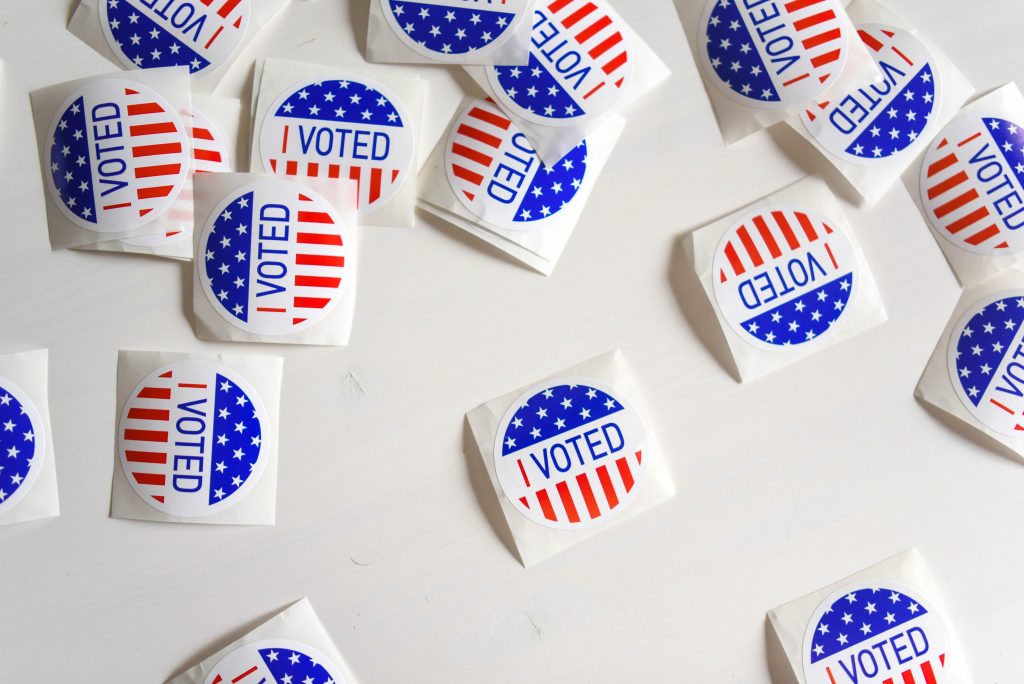
“If you want to skip reading my more detailed explanation, the answer is: No. Even when political news is strongly felt, there will likely never be a good time to shift your investments — neither in reaction nor as a defence. First, no matter how certain one or another outcome may seem, how the market is going to respond to the news remains essentially unknown. Second, by the time you’ve heard the news, it’s already priced into the market anyway.”
Fast-forward to 2020. To say the least, a few things have changed! But my advice remains the same: From one election to the next, other factors have exhibited a far greater impact on investment returns than which person or party holds the U.S. presidency. Whether leadership is more or less conservative, largely efficient markets have usually figured out a way to shift and grow, either way.
As we can see in this interactive chart from Dimensional Fund Advisors, these results are well-documented. They also make a lot of sense, given something called “stage-one and stage-two thinking.”
Thinking in Stages
Stage-one and stage-two thinking are terms popularized by economist Thomas Sowell in his book, “Applied Economics: Thinking Beyond Stage One.” Basically, before acting on an event’s initial (stage one) anticipated results, it’s best to engage in stage-two thinking, by first asking a very simple question:
“And then what will happen?”
By asking this question again and again, you can more objectively consider what Sowell refers to as the “long-run repercussions to decisions and policies.”
Who will next occupy the various seats of power around the globe, and what might the results be? Stage-two thinking helps us see past the usual proliferation of stage-one predictions that call for anything from financial ruin to unprecedented prosperity.
As financial author Larry Swedroe describes in a US News & World Report interview, “Stage one thinking occurs when something bad happens, you catastrophize and assume things will continue to get worse … Stage two thinking can help you move beyond catastrophizing … [so you can] consider why everything may not be as bad as it seems. Think about previous similar circumstances to disprove your catastrophic fears.”
Timeles lessons in terminal uncertainty
In the 2020 U.S. presidential race, we’re seeing prime examples of both dire and exuberant financial forecasts, presumably premised on who wins the election. The truth is, nobody has a clue what all the combined market-moving forces have in store for us in the near term, because nobody can know the answer to Sowell’s convoluted market-moving question: And then what will happen?
Consider, for example, President George W. Bush’s two terms, from 2001–2009. Bush was considered strongly “pro-business,” which should have been good for stock markets. But as depicted in Dimensional’s chart, he was elected on the heels of the Tech Bubble bursting, followed shortly by the horrific 9/11 terrorist attacks. His tenure was capped by the 2008–2009 financial crisis. Despite his promising economic platform, the broad U.S. stock market index declined by 18% during his administration. From a dollar perspective, $100 invested on President Bush’s November 7, 2000 election day declined to $82 by the time Barack Obama became president-elect on November 4, 2008. This emphasizes the point that unforeseen factors can far outweigh public policy.
Here are some additional stage-two thoughts to bear in mind:
- Regardless of the outcome of the U.S. elections (or our own politics closer to home), there’s no telling whether the markets will move up, down, or stay the same in response to any number of potential market-moving events: taxes, interest rates, tariffs, vaccines, national defense, and so on. By the time anything changes, the good/bad news will already be priced in, too late to profit from or avoid.
- Come what may in the near-term, the market has moved upward over time. But, it often does so dramatically, and when you least expect it.
- Shifting positions or moving to cash can generate burdensome trading costs and tax bills. Worse, it runs contrary to having a sensible plan, optimized to capture the market’s unpredictable returns when they occur, while minimizing the costs and manageable risks involved.
In this or any political clime, stage-two thinking should help you recognize the folly of trying to tie your investment hopes, dreams, fears, and trading decisions to one or another candidate. Politics matter – a lot – but not when it comes to second-guessing your well-planned portfolio.
 Steve Lowrie holds the CFA designation and has 25 years of experience dealing with individual investors. Before creating Lowrie Financial in 2009, he worked at various Bay Street brokerage firms both as an advisor and in management. “I help investors ignore the Wall and Bay Street hype and hysteria, and focus on what’s best for themselves.” This blog originally appeared on his site on Oct. 20, 2020 and is republished here with permission.
Steve Lowrie holds the CFA designation and has 25 years of experience dealing with individual investors. Before creating Lowrie Financial in 2009, he worked at various Bay Street brokerage firms both as an advisor and in management. “I help investors ignore the Wall and Bay Street hype and hysteria, and focus on what’s best for themselves.” This blog originally appeared on his site on Oct. 20, 2020 and is republished here with permission.


